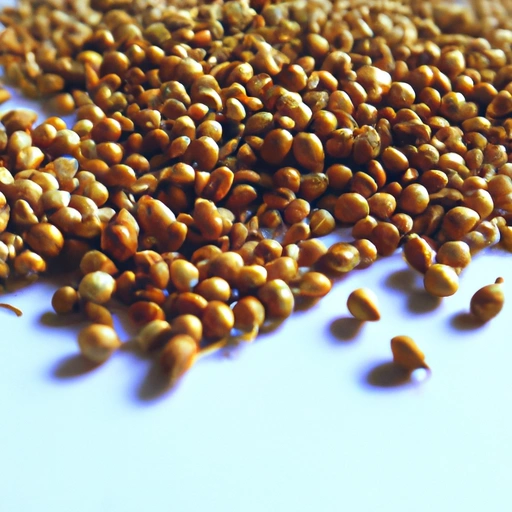Coriander Seed
Description

Coriander seed, derived from the Coriandrum sativum plant, is a staple in the pantries of chefs and home cooks around the globe. These small, round seeds boast a warm, earthy flavor with a hint of citrus and spice, making them an integral part of a myriad of dishes. Available in both whole and ground form, coriander seeds are used in a variety of culinary traditions, from South Asian to Latin American cuisines.
Common uses
Coriander seeds are commonly used as a spice in cooking and baking, as a flavoring agent in liqueurs, and in spice blends such as curry powder, garam masala, and Latin American adobo. They are also used in pickling and brining solutions, lending their distinct flavor to preserved vegetables and meats.
Nutritional value
Calories
One tablespoon (5 grams) of coriander seeds contains approximately 15 calories.
Protein
Coriander seeds provide about 0.6 grams of protein per tablespoon.
Fat
Containing about 0.9 grams of fat per tablespoon, coriander seeds have a healthy balance of essential fatty acids.
Carbohydrates
With nearly 2.7 grams of carbohydrates per tablespoon, coriander seeds are a source of dietary fiber and other important nutrients.
Vitamins
Coriander seeds are a good source of vitamins such as vitamin C, vitamin A, and the B-vitamins, including folic acid.
Minerals
Rich in minerals, coriander seeds contain calcium, magnesium, phosphorus, and small amounts of iron and potassium.
Health benefits
Due to their nutritional value, coriander seeds may offer various health benefits such as aiding digestion, reducing inflammation, and potentially lowering blood sugar levels. Their antioxidant properties help combat free radicals, contributing to overall health and well-being.
Potential risks
While generally considered safe for consumption, coriander seeds may cause allergic reactions in some individuals. Overconsumption can lead to digestive discomfort for people with sensitive stomachs.
Common recipes
Coriander seeds feature in recipes such as curries, soups, stews, marinades, and rubs for meats. They are also essential in the preparation of spice blends and in baking certain breads and pastries.
Cooking methods
The seeds can be used whole or ground, with toasting often enhancing their flavor. They can be added at the beginning of cooking to infuse dishes with their aroma, or used as a finishing spice for a more subtle taste.
Pairing with other ingredients
Coriander seeds pair well with cumin, garlic, ginger, and chili, and are often used alongside these spices to create complex flavor profiles. They also complement vegetables, poultry, seafood, and legumes.
Summary
Coriander seed is a globally cherished spice, valued for its versatility, unique flavor, and nutritional benefits. Whether used in traditional curry powders, modern fusion dishes, or as a simple seasoning, coriander seed is an essential ingredient that transcends cultural boundaries and enhances the taste of countless recipes.